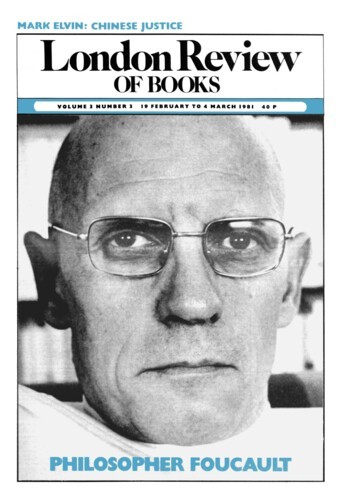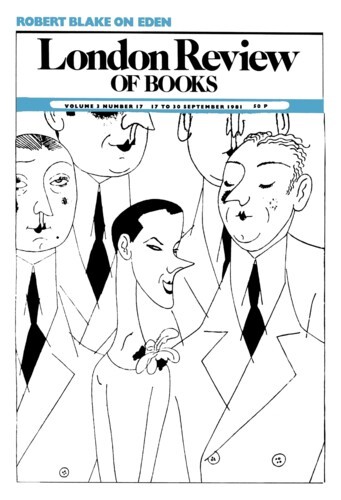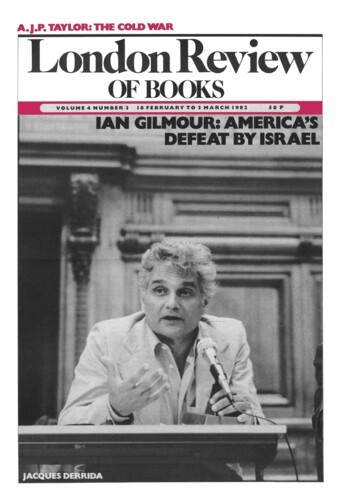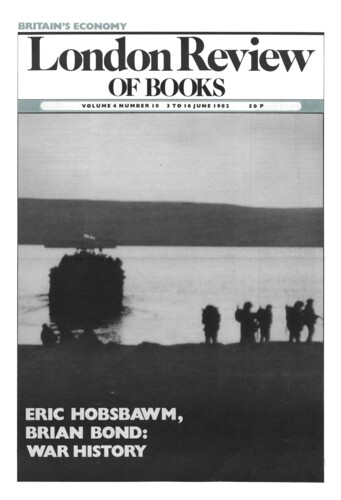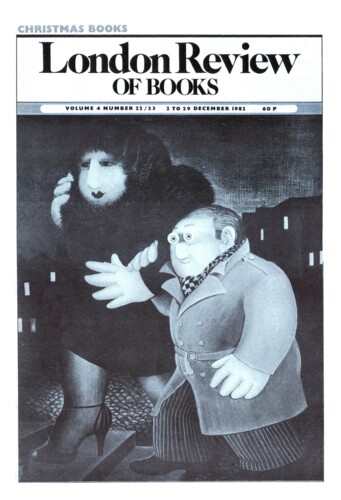Late Capote
Julian Barnes, 19 February 1981
Start at the back: with the photograph. Traditionally, author’s vanity and publisher’s lethargy combine to make a writer look much younger than he is. Truman Capote’s portrait does the opposite, and for a particular reason. Study recent press photographs of Mr Capote, or those published last year in Andy Warhol’s Exposures, and what do you see? A plump, jowly figure in the flush of vital middle age, capering into Studio 54 on the languid arm of a heavily beringed dress designer: a man, it appears, of active sensuality verging on self-indulgence. Now compare the Irving Penn photograph for the back jacket of Music for Chameleons. Emaciated fingers delicately support a frail skull: without their help, you feel, the head might simply snap off. One hand, indeed, supplies the vertical hold, the other the horizontal. The skin looks as if it might tear if grazed by a butterfly’s wing. The eyes stare hauntedly out. It cannot be a living author, let alone a man of 55. It reminds one most of those perfectly-preserved bog people dug up in Scandinavia and described by P.V.Glob. In other words – or rather, in words – Mr Capote is announcing his Late Period.
